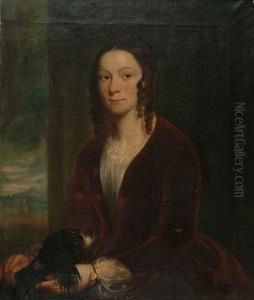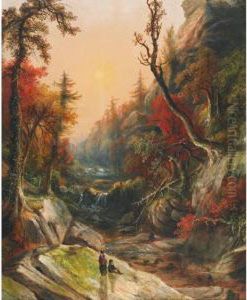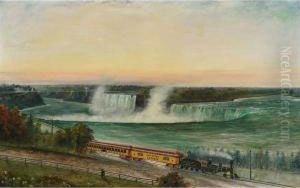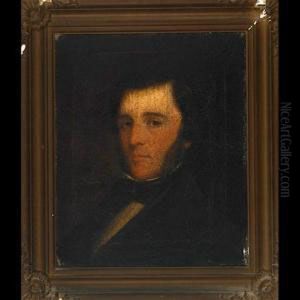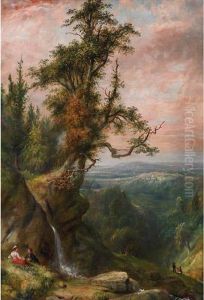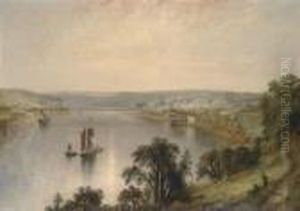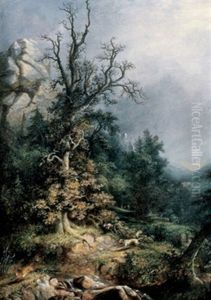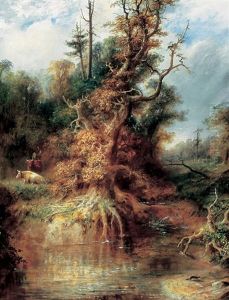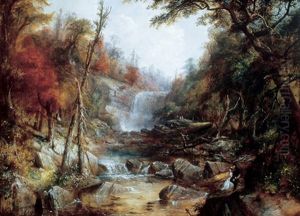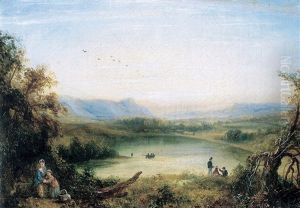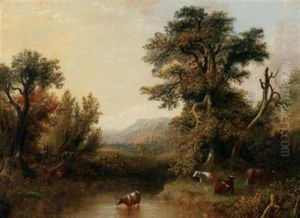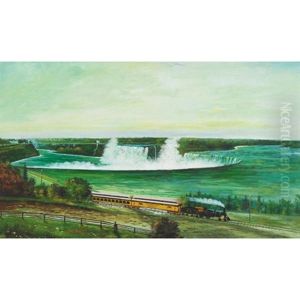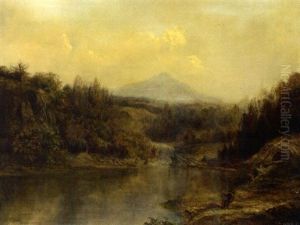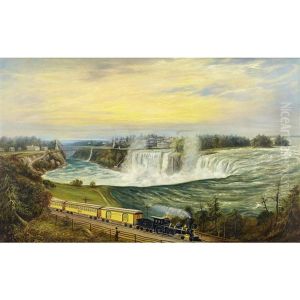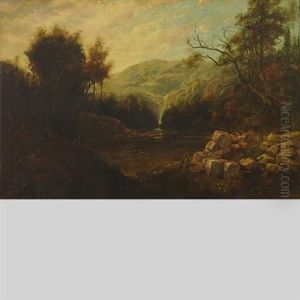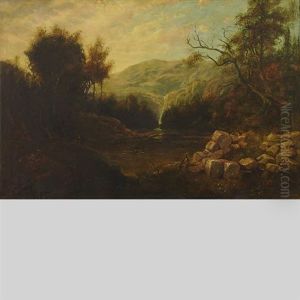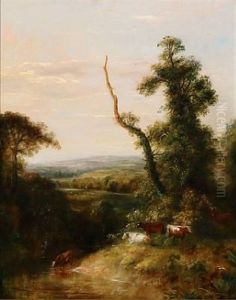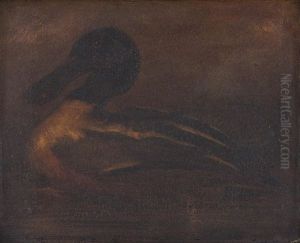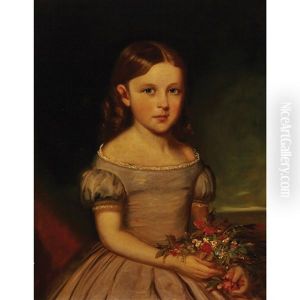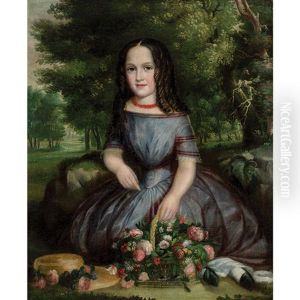Robert Reginald Whale Paintings
Robert Reginald Whale was a British-Canadian painter born in 1805 in Altarnun, Cornwall, England. He is primarily known for his landscape and marine paintings, capturing the essence of the Canadian and American scenery with a particular focus on the areas around Ontario, where he eventually settled. Whale's early life in England provided him with a foundation in the arts, but it was his migration to Canada in 1852 that truly shaped his career and contributions to the art world.
Upon settling in Canada, Robert Reginald Whale continued to develop his artistic skills, becoming one of the early prominent figures in Canadian art. He lived in Burford, Ontario, where he established himself and his family, including his nephew, John Claude Crawford Whale, who also became a painter. Whale's works often depicted the landscapes and burgeoning towns of 19th-century Canada, offering a glimpse into the era's settlement and natural beauty. His ability to capture the light and atmosphere of the Canadian landscape won him acclaim.
Throughout his career, Whale exhibited his works in both Canada and the United States, earning recognition and accolades on both sides of the border. His paintings were characterized by their detailed realism and often romantic portrayal of the North American wilderness and urban settings. Despite his British origins, Whale's art played a significant role in the development of a distinctly Canadian visual culture during the 19th century.
Robert Reginald Whale passed away in 1887 in Brantford, Ontario. His legacy includes not only his contribution to Canadian art but also his influence on other artists in his family and community. Today, Whale's paintings are considered important pieces of the early Canadian and North American artistic heritage, held in public and private collections across Canada and internationally. His work provides valuable insights into the landscape and society of his time, making him a notable figure in the annals of Canadian art history.

